Kyrie Zhixuan Zhou
Global Public Sentiment on Decentralized Finance: A Spatiotemporal Analysis of Geo-tagged Tweets from 150 Countries
Sep 01, 2024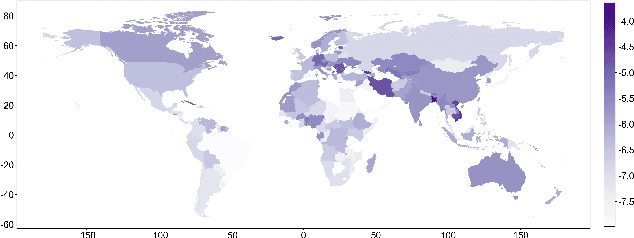
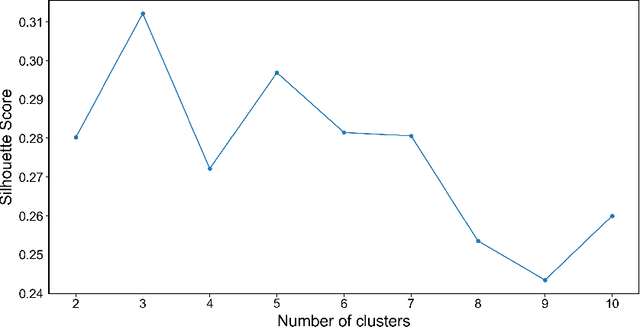
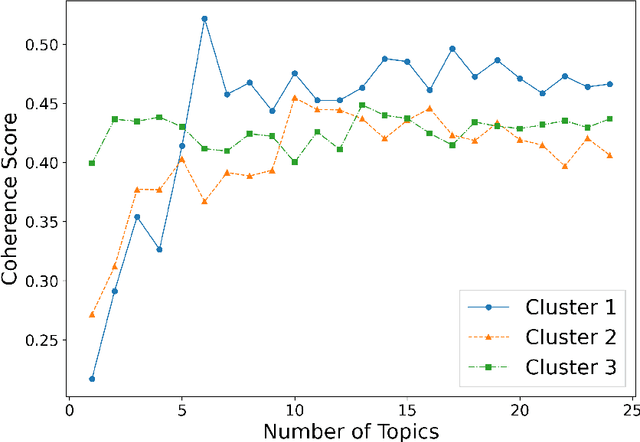
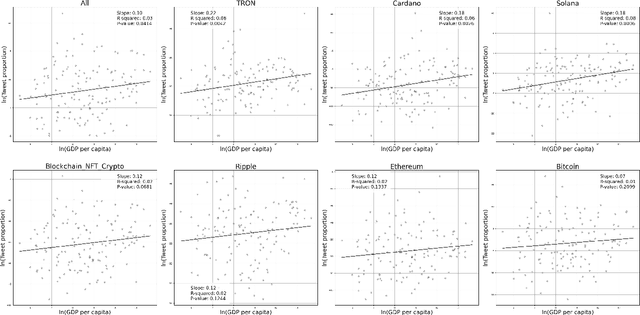
Abstract:In the digital era, blockchain technology, cryptocurrencies, and non-fungible tokens (NFTs) have transformed financial and decentralized systems. However, existing research often neglects the spatiotemporal variations in public sentiment toward these technologies, limiting macro-level insights into their global impact. This study leverages Twitter data to explore public attention and sentiment across 150 countries, analyzing over 150 million geotagged tweets from 2012 to 2022. Sentiment scores were derived using a BERT-based multilingual sentiment model trained on 7.4 billion tweets. The analysis integrates global cryptocurrency regulations and economic indicators from the World Development Indicators database. Results reveal significant global sentiment variations influenced by economic factors, with more developed nations engaging more in discussions, while less developed countries show higher sentiment levels. Geographically weighted regression indicates that GDP-tweet engagement correlation intensifies following Bitcoin price surges. Topic modeling shows that countries within similar economic clusters share discussion trends, while different clusters focus on distinct topics. This study highlights global disparities in sentiment toward decentralized finance, shaped by economic and regional factors, with implications for poverty alleviation, cryptocurrency crime, and sustainable development. The dataset and code are publicly available on GitHub.
How People Perceive The Dynamic Zero-COVID Policy: A Retrospective Analysis From The Perspective of Appraisal Theory
Sep 17, 2023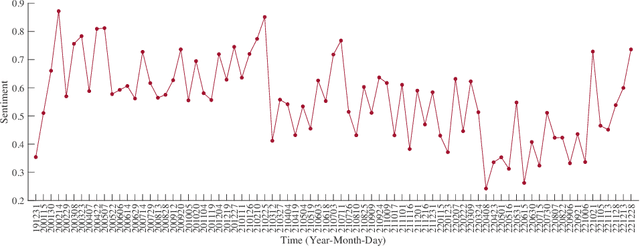
Abstract:The Dynamic Zero-COVID Policy in China spanned three years and diverse emotional responses have been observed at different times. In this paper, we retrospectively analyzed public sentiments and perceptions of the policy, especially regarding how they evolved over time, and how they related to people's lived experiences. Through sentiment analysis of 2,358 collected Weibo posts, we identified four representative points, i.e., policy initialization, sharp sentiment change, lowest sentiment score, and policy termination, for an in-depth discourse analysis through the lens of appraisal theory. In the end, we reflected on the evolving public sentiments toward the Dynamic Zero-COVID Policy and proposed implications for effective epidemic prevention and control measures for future crises.
Public Perceptions of Gender Bias in Large Language Models: Cases of ChatGPT and Ernie
Sep 17, 2023Abstract:Large language models are quickly gaining momentum, yet are found to demonstrate gender bias in their responses. In this paper, we conducted a content analysis of social media discussions to gauge public perceptions of gender bias in LLMs which are trained in different cultural contexts, i.e., ChatGPT, a US-based LLM, or Ernie, a China-based LLM. People shared both observations of gender bias in their personal use and scientific findings about gender bias in LLMs. A difference between the two LLMs was seen -- ChatGPT was more often found to carry implicit gender bias, e.g., associating men and women with different profession titles, while explicit gender bias was found in Ernie's responses, e.g., overly promoting women's pursuit of marriage over career. Based on the findings, we reflect on the impact of culture on gender bias and propose governance recommendations to regulate gender bias in LLMs.
"I'm Not Confident in Debiasing AI Systems Since I Know Too Little": Teaching AI Creators About Gender Bias Through Hands-on Tutorials
Sep 15, 2023



Abstract:Gender bias is rampant in AI systems, causing bad user experience, injustices, and mental harm to women. School curricula fail to educate AI creators on this topic, leaving them unprepared to mitigate gender bias in AI. In this paper, we designed hands-on tutorials to raise AI creators' awareness of gender bias in AI and enhance their knowledge of sources of gender bias and debiasing techniques. The tutorials were evaluated with 18 AI creators, including AI researchers, AI industrial practitioners (i.e., developers and product managers), and students who had learned AI. Their improved awareness and knowledge demonstrated the effectiveness of our tutorials, which have the potential to complement the insufficient AI gender bias education in CS/AI courses. Based on the findings, we synthesize design implications and a rubric to guide future research, education, and design efforts.
 Add to Chrome
Add to Chrome Add to Firefox
Add to Firefox Add to Edge
Add to Edge